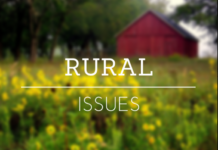The Kansas Supreme Court is considering proposed changes to Supreme Court Rule 106
to clarify treatment of personally identifiable information in marriage licensing documents
maintained by the district courts. The proposed changes are shown below in italics.
The Court is accepting comments on the proposed rule changes until April 12, 2015.
Comments may be addressed to publiccomments@kscourts.org.
______________________________________________________________________________
Rule 106
COURT RECORDS
(a) Court Files and Records. Except as otherwise provided in subsection (b), court files and
records must remain in the court’s physical possession and control.
(b) Authorized Check Out. An attorney or abstracter may check out a court file or record —
subject to immediate return on request of the clerk of the district court — on the following
conditions:
(1) the attorney or abstracter must sign a receipt;
(2) the file or record must not be taken outside the county unless authorized by the clerk
(3) the file or record must be returned in its original condition.
(c) Court Services Officer Files. All court services officer files — including case notes —
are confidential and are not subject to subpoena or other process. Unless otherwise ordered
by the court, the records may be disclosed only to the court, a court employee assigned to
the case, or a person legally entitled to receive the disclosure. Orders to produce drug and
alcohol abuse patient records must comply with 42 C.F.R. Part 2.
(d) Marriage Licensing Documents. Documents used to obtain a marriage license are
confidential and are not subject to disclosure under the Kansas Open Records Act, K.S.A.
45-215 et seq.
(1) Marriage licensing document defined. A marriage licensing document refers to the
or a court order; and
following:
(i) a document evidencing the oath required by K.S.A. 23-2515;
(ii) a document containing the personal and statistical information the Kansas
Department of Health and Environment requires on forms issued pursuant to
K.S.A. 23-250; and
(iii) the license for individuals to enter a marriage under K.S.A. 23-2505.
(2) When disclosure permitted. Unless otherwise ordered by the court, marriage
licensing documents may be disclosed to the court, a court employee assigned to the
case, the Kansas Department of Health and Environment, or the person to whom the
marriage license was issued. A person making a request for his or her own marriage
licensing documents must display unexpired government-issued photo identification,
which s sufficient proof of identity for purposes of this subsection.
(3) Limited marriage record. District courts must make publicly available a limited
marriage record as prescribed by the Judicial Administrator. The content of a limited
marriage record must not include the following personal information:
(i) an applicant’s Social Security number;
(ii) an applicant’s date or city of birth;
(iii) an applicant’s mother’s maiden name; or
(iv) any information expressly designated as confidential on forms promulgated by
the Kansas Department of Health and Environment under K.S.A. 23-2509.
(4) Existing marriage licensing documents. Marriage licensing documents created
before June 1, 2015, may be closed in whole or in part by redaction at the discretion
of the chief judge of a judicial district or in accordance with an applicable exception
to the Kansas Open Records Act. An applicant whose marriage licensing documents
remain open may petition the court for closure of the documents, and any judge of the
district court may rule on the petition for closure.




